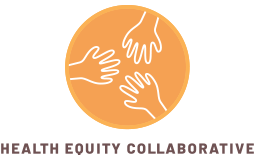22 Oct A Broken System: Reforming the Charity Care System in the United States
Today, the Health Equity Collaborative (HEC), a diverse community comprised of dozens of national, public health, patient advocacy, and multicultural organizations committed to supporting equity and combating disparities experienced by underserved communities, published a new research paper that reviews the history and current state of charity care in the United States and outlines several policy reforms to ensure underserved populations can receive the care they need.
The charity care system in the United States too often fails to provide the necessary relief for underserved patients while burdening hospitals with significant financial strain. To ensure equitable access to healthcare for all, we must reform the charity care system.
Following the passage of the Affordable Care Act’s (ACA) Medicaid expansion (ACA), the profits of nonprofit hospitals have steadily increased. Many hospital systems have consolidated and shifting the cost of uncompensated care to taxpayers has become common. Meanwhile, the provision of charity care and community benefits has often declined, while individuals’ medical debts have soared.
The growth of the 340B Drug Pricing Program over the past few decades is only compounding the problem.
The 340B Drug Pricing Program aims to help participating hospitals serve low-income and vulnerable patients. Under the program, pharmaceutical manufacturers must provide significant discounts — averaging nearly 60 percent — for certain medicines purchased for those patients. In return, 340B providers are expected to help patients in financial need receive discounted outpatient medicine and services — including through charity care.
However, while Medicaid expansion resulting from the Affordable Care Act made more hospitals eligible for the 340B program, the amount of charity care provided to patients who are uninsured or otherwise in need is not factored into a hospital’s eligibility. Thus, hospitals can benefit from discounted drug prices without meeting a certain threshold or standard for charity care. This has resulted in some 340B hospitals steering patients to purchase more expensive medicines and creating barriers to prevent patients from accessing care.
For example, a new report from the American Society of Health Economists found massive cancer drug price markups and increased cancer drug use by 340B hospitals, often in wealthier areas—suggesting the program is currently being used outside its intended scope as a means to pad bottom lines.
Effective reforms to the current system would elicit information about how current charity care programs function—including eligibility criteria, application procedures, health outcomes, and financial burdens on patients receiving charity care.
The Health Equity Collaborative recommends Congress pursue the following reforms:
Require Additional Transparency Over Hospital Billing, Charity Care Programs & Medical Debt Collection Practices
Transparency is the cornerstone of any effective system. Hospitals should be required to disclose their billing practices, charity care programs, and medical debt collection practices in a clear and understandable manner. This would empower patients to make informed decisions about their healthcare and reduce the likelihood of unexpected medical bills.
Enforcing Transparency Requirements to Address Hospital Noncompliance
While transparency requirements are essential, they are only as effective as their enforcement. It is crucial to establish robust oversight mechanisms to ensure that hospitals are complying with these regulations. This could involve regular audits, penalties for noncompliance, and public disclosure of any violations.
Creating a National Standard for Charity Care
The current lack of a national standard for charity care creates a confusing and inconsistent landscape for patients and hospitals alike. Establishing a standardized framework would ensure that all individuals, regardless of their location, have access to similar levels of charity care. This could include guidelines for eligibility, the types of services covered, and an appeals process.
Reforming the 340B Drug Pricing Program
The 340B Drug Pricing Program was designed to help hospitals serve low-income patients. However, it has been criticized for its lack of transparency and accountability. Reforming this program could involve stricter oversight, increased transparency, and ensuring that the savings from the program are used to benefit low-income patients.
By implementing these reforms, we can create a more equitable and sustainable charity care system that ensures that everyone has access to the healthcare they need. It is time to address the shortcomings of the current system and build a healthcare system that truly puts patients first.


